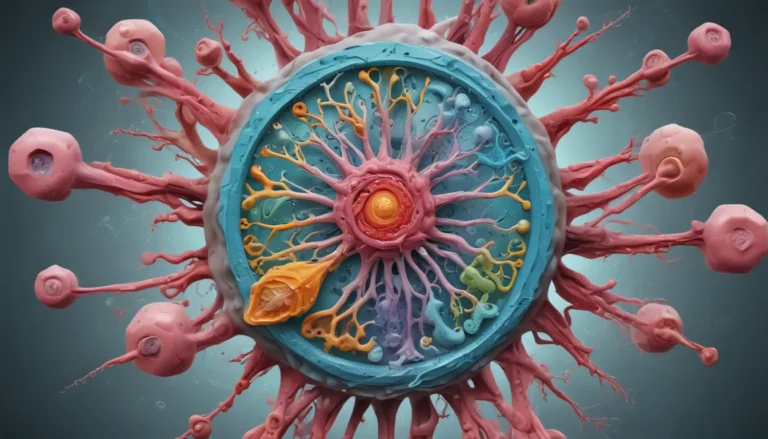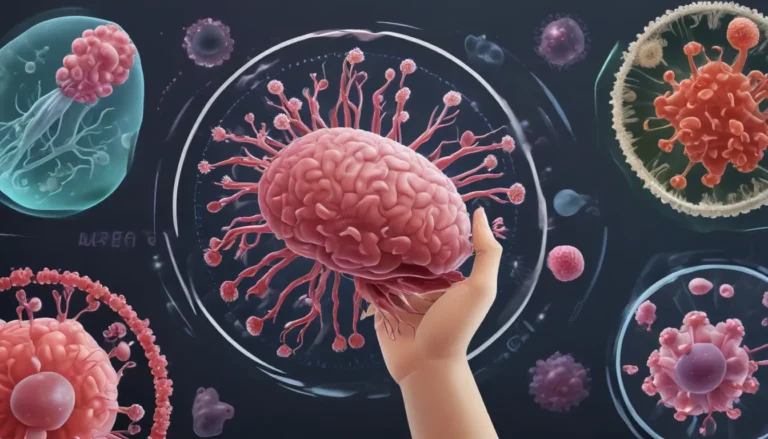A Note About Images: The images used in our articles are for illustration purposes only and may not exactly match the content. They are meant to engage readers, but the text should be relied upon for accurate information.
Welcome to the extraordinary world of Crispr-Cas9 technology, a revolutionary tool that has captivated the realms of biology and genetics. This powerful gene-editing technology has opened doors to endless possibilities, from treating genetic diseases to transforming agriculture and sparking ethical debates about its implications.
Unveiling the Marvels of Crispr-Cas9
Derived from a bacteria’s natural defense mechanism, Crispr-Cas9 stands as a beacon of hope in the realm of genetic research and medical applications. Its ability to precisely edit genes, thanks to the Clustered Regularly Interspaced Short Palindromic Repeats (CRISPR) and associated proteins, has revolutionized the field and provided a glimpse into a future where genetic manipulation is within reach like never before.
The Origin Story of Crispr-Cas9
Initially discovered as a part of bacteria’s immune system, Crispr-Cas9 serves as a guardian against viral infections by identifying and excising viral DNA. Harnessing this mechanism for gene editing purposes has transformed the landscape of genetic research and paved the way for groundbreaking discoveries.
Precision at Its Finest: Crispr-Cas9 in Action
The molecular guide, single guide RNA (sgRNA), plays a pivotal role in ensuring Crispr-Cas9’s precise targeting of specific sections of DNA. Coupled with the Cas9 enzyme, this technology cuts DNA at the desired location, enabling scientists to delete, modify, or replace genes with unparalleled accuracy.
A Promising Future: Applications of Crispr-Cas9
The potential of Crispr-Cas9 transcends mere scientific curiosity, offering hope in the treatment of genetic diseases such as cystic fibrosis, sickle cell anemia, and Huntington’s disease. Furthermore, its applications in agriculture hold the key to enhancing crop yield, disease resistance, and environmental resilience, addressing pressing food security challenges and fostering sustainable farming practices.
Ethical Contemplations: The Debate Surrounding Crispr-Cas9
As the ability to edit genes raises ethical dilemmas, discussions about the responsible use of Crispr-Cas9 technology continue to unfold. From concerns about creating “designer babies” to the potential for unintended consequences, the ethical implications of gene editing are a subject of ongoing scrutiny.
Crispr-Cas9’s Impact on Biotechnology: A New Frontier
Transforming the biotechnology industry, Crispr-Cas9 has accelerated drug discovery, enabled the development of more effective therapies, and facilitated the creation of disease models to deepen our understanding of complex human conditions. Its far-reaching implications extend beyond medicine, shaping the future of biotechnological innovation.
Pioneering Discoveries and Potential Breakthroughs
In laboratory experiments, Crispr-Cas9 has showcased its prowess by eradicating diseases like HIV, malaria, and certain cancers. While the journey from laboratory success to clinical application requires further research, the promise of Crispr-Cas9 remains a beacon of hope in the realm of disease treatment and prevention.
Democratizing Gene Editing: Crispr-Cas9’s Accessibility
Prior to Crispr-Cas9, gene editing was complex and costly. However, this groundbreaking technology has democratized gene-editing research, making it more accessible and affordable for scientists worldwide. This accessibility has unlocked new opportunities for innovation and exploration in the realm of genetics.
Innovation Knows No Bounds: Constant Evolution of Crispr-Cas9
Scientists are tirelessly working to enhance the efficiency and accuracy of Crispr-Cas9. New variants and modifications, such as base editing and prime editing, are on the horizon, promising to broaden the capabilities of gene editing and address its limitations with precision and finesse.
Envisioning Personalized Medicine: The Promise of Crispr-Cas9
With its ability to tailor treatments to individual genetic profiles, Crispr-Cas9 holds the key to personalized medicine. By precision editing genes, this technology opens doors to more effective and targeted therapies, ushering in a new era of healthcare tailored to individual needs.
Embarking on a Journey of Discovery
As we navigate the extraordinary landscape of Crispr-Cas9 technology, we are met with a wealth of information and possibilities that are reshaping the future of science and medicine. From genetic engineering to biotechnology, each facet of this groundbreaking technology offers a glimpse into a world where innovation and possibility converge.
FAQs: Navigating the Realm of Crispr-Cas9
-
What is Crispr-Cas9 technology?
Crispr-Cas9 is a powerful gene-editing tool that enables precise modifications to genes within living organisms. -
How does Crispr-Cas9 work?
Crispr-Cas9 utilizes guide RNA to target specific DNA sequences for modification, with the Cas9 enzyme facilitating gene editing. -
What are some potential applications of Crispr-Cas9 technology?
Crispr-Cas9 has the potential to revolutionize medicine by treating genetic disorders, improving agriculture, and fueling advancements in bioengineering. -
Are there ethical concerns surrounding Crispr-Cas9?
Yes, ethical questions abound regarding the use of Crispr-Cas9, particularly in human gene editing. Considerations around unintended consequences and altering the human germline are critical areas for reflection. -
Has Crispr-Cas9 technology been successfully used in human trials?
While promising results have been observed in early-stage human trials, the full potential of Crispr-Cas9 in clinical applications is still under research. Ongoing studies focus on safety and efficacy. -
What are the limitations of Crispr-Cas9?
Off-target effects and challenges in delivering components to target cells are among the limitations of Crispr-Cas9. Addressing these challenges is crucial for maximizing the potential of this technology. -
Are there alternatives to Crispr-Cas9 for gene editing?
Yes, other gene-editing technologies like zinc finger nucleases and TALENs exist, but Crispr-Cas9’s simplicity and efficiency have propelled it to the forefront of genetic research. -
Can Crispr-Cas9 cure genetic diseases?
While the potential for curing genetic diseases exists, further research is essential to ensure the safety, efficacy, and long-term effects of implementing Crispr-Cas9 in clinical settings. -
Is Crispr-Cas9 limited to humans?
No, Crispr-Cas9 finds applications in a wide range of organisms, including plants, animals, and microorganisms, for research and agricultural purposes. -
How has Crispr-Cas9 impacted the field of biology?
Crispr-Cas9 has revolutionized biology by providing a precise and efficient tool for studying gene function, accelerating research, and unlocking possibilities for genetic manipulation. -
Can Crispr-Cas9 enhance human traits?
While theoretically possible, the ethical considerations surrounding using Crispr-Cas9 for enhancing human traits warrant careful contemplation and societal dialogue. -
How can I learn more about Crispr-Cas9 technology?
Dive into a plethora of resources, including scientific articles, books, and online courses, to gain a deeper understanding of Crispr-Cas9 and its implications for biology and beyond.
Unlock the mysteries of Crispr-Cas9 technology and embark on a journey of discovery and innovation that promises to reshape the future of science and medicine. From revolutionizing genetic research to fueling advancements in agriculture and biotechnology, the possibilities are endless with this groundbreaking tool at our fingertips. Join us as we delve into the extraordinary world of gene editing and witness the remarkable potentials that Crispr-Cas9 holds for the future of humanity.






